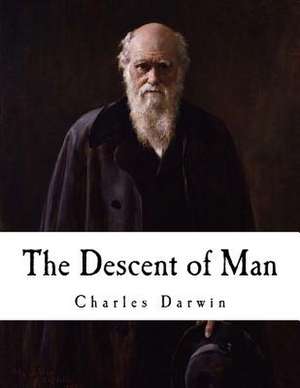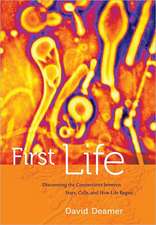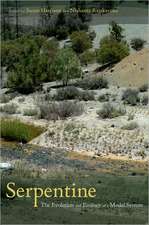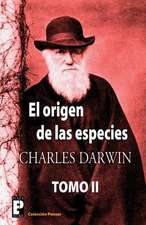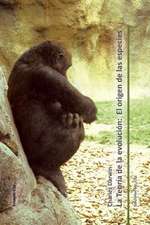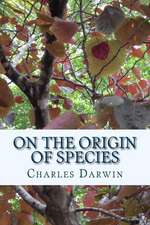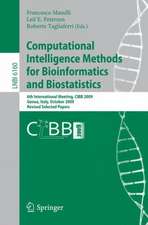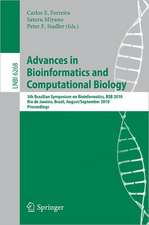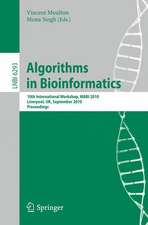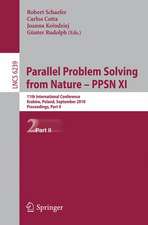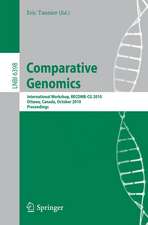The Descent of Man
Autor Charles Darwin Editat de Francis Darwinen Limba Engleză Paperback
The Descent of Man
And
Selection in Relation to Sex
Works by Charles Darwin, F.R.S.
Life and Letters of Charles Darwin.
With an Autobiographical Chapter.
Edited by Francis Darwin.
Popular Edition.
The nature of the following work will be best understood by a brief account of how it came to be written. During many years I collected notes on the origin or descent of man, without any intention of publishing on the subject, but rather with the determination not to publish, as I thought that I should thus only add to the prejudices against my views. It seemed to me sufficient to indicate, in the first edition of my 'Origin of Species, ' that by this work "light would be thrown on the origin of man and his history;" and this implies that man must be included with other organic beings in any general conclusion respecting his manner of appearance on this earth. Now the case wears a wholly different aspect. When a naturalist like Carl Vogt ventures to say in his address as President of the National Institution of Geneva (1869), "personne, en Europe au moins, n'ose plus soutenir la creation indEpendante et de toutes pieces, des especes," it is manifest that at least a large number of naturalists must admit that species are the modified descendants of other species; and this especially holds good with the younger and rising naturalists. The greater number accept the agency of natural selection; though some urge, whether with justice the future must decide, that I have greatly overrated its importance. Of the older and honoured chiefs in natural science, many unfortunately are still opposed to evolution in every form.
Charles Darwin, 12 February 1809 - 19 April 1882, was an English naturalist, geologist and biologist, best known for his contributions to the science of evolution. He established that all species of life have descended over time from common ancestors and, in a joint publication with Alfred Russel Wallace, introduced his scientific theory that this branching pattern of evolution resulted from a process that he called natural selection, in which the struggle for existence has a similar effect to the artificial selection involved in selective breeding.
| Toate formatele și edițiile | Preț | Express |
|---|---|---|
| Paperback (10) | 35.52 lei 3-5 săpt. | +18.37 lei 7-13 zile |
| WORDSWORTH EDITIONS LTD – 8 iul 2013 | 35.52 lei 3-5 săpt. | +18.37 lei 7-13 zile |
| CreateSpace Independent Publishing Platform – | 111.20 lei 3-5 săpt. | |
| Plume Books – 30 noi 2007 | 138.12 lei 3-5 săpt. | |
| CREATESPACE – | 176.49 lei 3-5 săpt. | |
| – | 181.36 lei 3-5 săpt. | |
| – | 210.87 lei 3-5 săpt. | |
| Outlook Verlag – 24 sep 2019 | 474.65 lei 3-5 săpt. | |
| Digireads.com – 9 iun 2019 | 164.56 lei 6-8 săpt. | |
| NuVision Publications – 29 sep 2007 | 269.17 lei 38-44 zile | |
| Delhi Open Books – 12 iun 2020 | 269.54 lei 6-8 săpt. | |
| Hardback (1) | 588.51 lei 3-5 săpt. | |
| Outlook Verlag – 24 sep 2019 | 588.51 lei 3-5 săpt. |
Preț: 115.38 lei
Nou
22.08€ • 22.78$ • 18.42£
Carte indisponibilă temporar
Specificații
ISBN-10: 1981786678
Pagini: 364
Dimensiuni: 216 x 279 x 19 mm
Greutate: 0.84 kg
Descriere
In this accessible edition of Darwins incendiary classic, renowned evolutionary science writer Zimmer edits this special abridged edition--made up of nine excerpts--and brilliantly places Darwins basic ideas in the context of the current understanding of human nature and 21st-century DNA research.
Notă biografică
Darwin published his theory of evolution with compelling evidence in his 1859 book On the Origin of Species. By the 1870s, the scientific community and a majority of the educated public had accepted evolution as a fact. However, many favoured competing explanations which gave only a minor role to natural selection, and it was not until the emergence of the modern evolutionary synthesis from the 1930s to the 1950s that a broad consensus developed in which natural selection was the basic mechanism of evolution. Darwin's scientific discovery is the unifying theory of the life sciences, explaining the diversity of life.
Darwin's early interest in nature led him to neglect his medical education at the University of Edinburgh; instead, he helped to investigate marine invertebrates. Studies at the University of Cambridge (Christ's College) encouraged his passion for natural science. His five-year voyage on HMS Beagle established him as an eminent geologist whose observations and theories supported Charles Lyell's conception of gradual geological change, and publication of his journal of the voyage made him famous as a popular author.
Puzzled by the geographical distribution of wildlife and fossils he collected on the voyage, Darwin began detailed investigations, and in 1838 conceived his theory of natural selection. Although he discussed his ideas with several naturalists, he needed time for extensive research and his geological work had priority. He was writing up his theory in 1858 when Alfred Russel Wallace sent him an essay that described the same idea, prompting immediate joint publication of both of their theories. Darwin's work established evolutionary descent with modification as the dominant scientific explanation of diversification in nature. In 1871 he examined human evolution and sexual selection in The Descent of Man, and Selection in Relation to Sex, followed by The Expression of the Emotions in Man and Animals (1872). His research on plants was published in a series of books, and in his final book, The Formation of Vegetable Mould, through the Actions of Worms (1881), he examined earthworms and their effect on soil.
